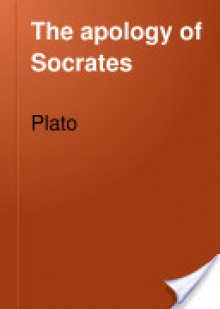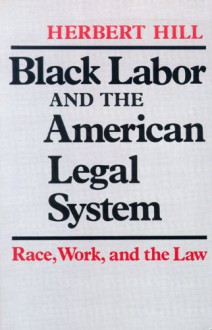
These days when we think of the word apology we usually connect it with saying sorry for something that we have done wrong, however that is not necessarily the origin of the word. Christianity has a field of study known as apologetics, and once again, this is not necessarily saying sorry for the many evils deeds that have been committed under the name of Christianity but rather putting up a defense against attacks that are levelled against the faith and providing a reason for the hope that we have. This is what the Apology of Socrates is about: it is the defense that Socrates made against the charges that were levelled against him in 399 BC which ultimately led to his death. I note that the dating of this work is about 9 years after Socrates' death, so many of the sayings (such as the 'unexamined life is not worth living') are second hand, however we should note that Plato was present at the trial so this is in effect an eyewitness account. Also, it is clear that this was transcribed and published at least 9 years after the events themselves, and since the memories of the ancients were much better than our memories (namely because they did not have sources such as Wikipedia at their disposal) I am willing to accept that this is a fairly accurate report of what happened at the trial.
The Apology is divided into three parts, corresponding with the way that an Athenian trial would be conducted. When you appeared in an Athenian court you were not allowed to have somebody appear on your behalf, as is the practice today, but had to make your charges, and answer them, yourself. As such a hugely profitable business arose in which speech writers would write the speech on your behalf for you to deliver it. No doubt Miletus, the person making the accusation against Socrates, either used this service, or was a sophist (the person who would write the speech) himself.
The first, and the longest, section of the Apology is Socrates' defense. From reading the defense we can determine that the charges were twofold, heresy and corrupting the youth. During his response, he refers to Anaxagoras, a philosopher who was also brought up on charges of heresy, but Socrates distances himself from Anaxagoras namely because Anaxagoras was an atheist; Socrates was not. The second charge, corrupting the youth, is not the same as we would understand it today. Today, crimes against youths (that is people under the age of 18) are generally always sexual, though crimes do exist where the perpetrator encourages the youth to commit a crime (though to be brought up on such a charge, the person that you are influencing could be of any age). The charge against Socrates was that he taught the youth to question everything and that his teachings were decidedly anti-democratic.
It is clear from the Apology that Socrates held a very dim view of Athenian Democracy, and from what we can gather I am not surprised. It has been suggested that Socrates leant to the right but I do not believe that we can ascribe modern political theory to the politics of Athens. The concern Socrates had with Athenian democracy was that it was clearly based on popular opinion rather than upon truth and justice. One example he raises is the events at the battle of Arginusae. Despite that battle being an Athenian victory, it was also quite disastrous for the city, best described as a Pyrrhic victory (despite Pyrrhus living after these events). As a result the generals leading the battle were put on trial, and despite the generals actually being innocent and the trial being little more that a witch hunt, they were found guilty by popular opinion and executed. This is the problem that Socrates had with democracy (and in many ways it is still the case today, where a government will act unconstitutionally because popular opinion demands that the government act as such: for instance, at a trial in South Australia the judge acquitted the accused, and there was such a public outcry over the acquittal that the government stepped in, overturned the acquittal, and ordered a new trial, as well as sacking the Director of Public Prosecutions).
The concerns that a certain party had was that Socrates' teachings would undermine the democratic system of which Athens was so proud. However, Socrates' position was that one should only act in a just manner, and it is this desire for justice that made Socrates such a thorn in people's side. Socrates himself even says that he stayed well away from public office simply because he did not trust himself to be able to maintain his position with regards to justice if he were to find himself in a position of power. Obviously he was required to attend the assembly, as was expected of all Athenian citizens, however he never put himself forward (or so we are told) to be elected to the executive council, or any of the other positions that were available to Athenian citizens.
The second part of the Apology is where Socrates puts forward his proposed punishment. Once again it is similar to our legal system where once a person is found guilty (and in Athens is was not beyond reasonable doubt, but rather a balance of probabilities, and of the 500 members of the jury, just over half voted in favour of his guilt, so it appears to have been a tight run thing) both sides have the option of swaying the judge in regards to the punishment. No doubt the prosecution always goes for the toughest sentence possible, while the defense will then put forward a sentence that is much lighter. Socrates, however, suggests that the only sentence that is beneficial for him would be death simply because he has no money to pay a fine, and that even imprisonment is not an option because of the fact that he is poor. He also considers banishment, but suggests that due to his reputation, and due to his age, there really is no point. He does settle on the idea of a fine, however he did suggest that due to his influence in the city, maybe being treated as a hero was much better.
Obviously he was sentenced to death so the third part of the Apology is his final speech to the jury and in this speech he indicates that he really doesn't care about his punishment. He is not scared of death and he feels that he has lived a long enough life that death does not really concern him, particularly since he is destined to die anyway. Even then, the uncertainty of death simply means that it is another opportunity for him to learn something new.
I wish to finish off on another comment that he makes, and that is that if they do execute him they should be aware that somebody like him is unlikely to come around for a long time, so they need to be aware that once he is gone, he is gone for good. Mind you, others have appeared (Jesus Christ for instance) however he is quite correct in that, not that he is being arrogant, but indicating that his motivations, and his desire for truth and justice, is what keeps the city for falling into obscurity. He sees himself as a challenger and as a moderator against the extremes. He also speaks of a voice whom he listens to because the voice moderates his activity. It is not that he voice tells him to do things, but rather tells him not to do things. He is very clear on that, and one thus questions whether this is schizophrenia in the true sense. Mysterious voices tend to urge people on to do things (and usually bad things) however Socrates is quite clear that his voice is a voice of restraint. To be honest with you, I am more likely to listen to a voice of restraint than I am to listen to the opposite, and the reason for this is that restraint tends to protect you from putting your foot in your mouth and making enemies than does a voice that urges you on to do things that maybe you shouldn't really be doing.


 Log in with Facebook
Log in with Facebook 







